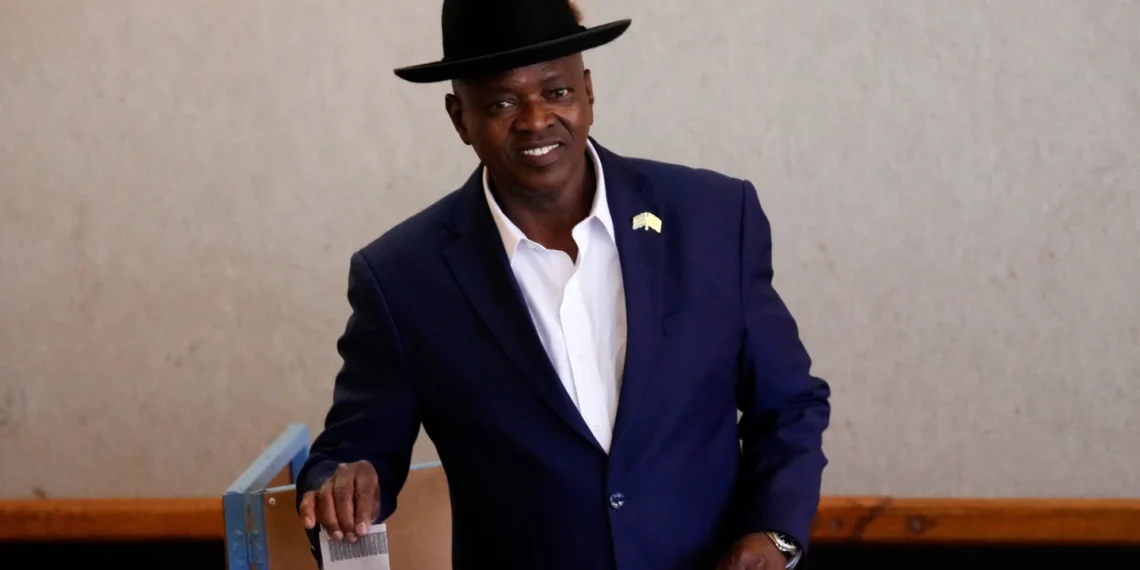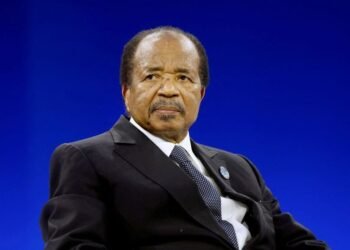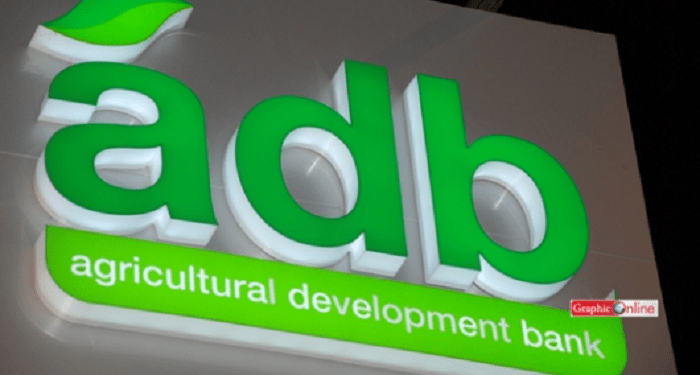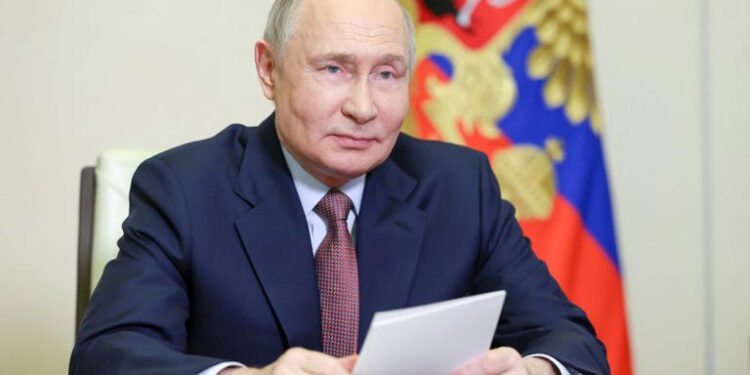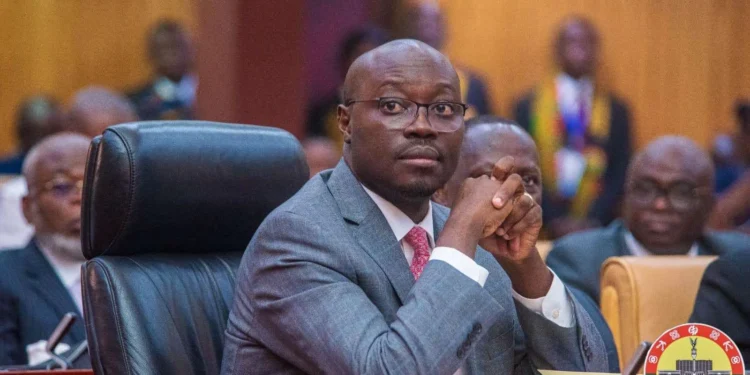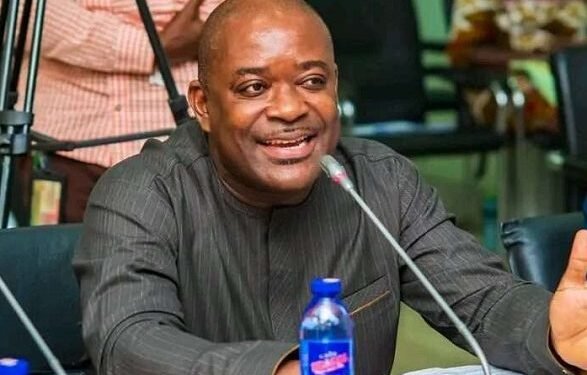In a historic shift, Botswana’s President Mokgweetsi Masisi conceded defeat on Friday, November 1 in the country’s general election, signaling an end to the Botswana Democratic Party’s (BDP) 58-year rule since gaining independence from Britain in 1966.
The surprise outcome places the Umbrella for Democratic Change (UDC) at the forefront, as partial election results point to a commanding lead, making UDC candidate Duma Boko the President-elect.
Masisi’s acknowledgment of defeat came before the official final tally was announced, with BDP trailing in fourth place and unable to secure enough seats for a majority. “I concede the election,” Masisi announced in an early-morning press conference, emphasizing his respect for Botswana’s democratic values. “Although I wanted a second term, I will respectfully step aside and participate in a smooth transition process.”
A Landslide Victory for the UDC
Partial results indicated that the UDC had secured 25 of the 61 parliamentary seats, nearing the 31-seat threshold required for a majority. Boko, a 54-year-old lawyer, and Harvard Law School graduate, stands poised to lead Botswana as its sixth President.
The Botswana Congress Party and the Botswana Patriotic Front have also claimed a share of seats, with BDP securing just three — a far cry from its once-dominant position.
Masisi shared that he had reached out to Boko to offer congratulations and support, saying, “I look forward to attending the coming inauguration and cheering on my successor.”
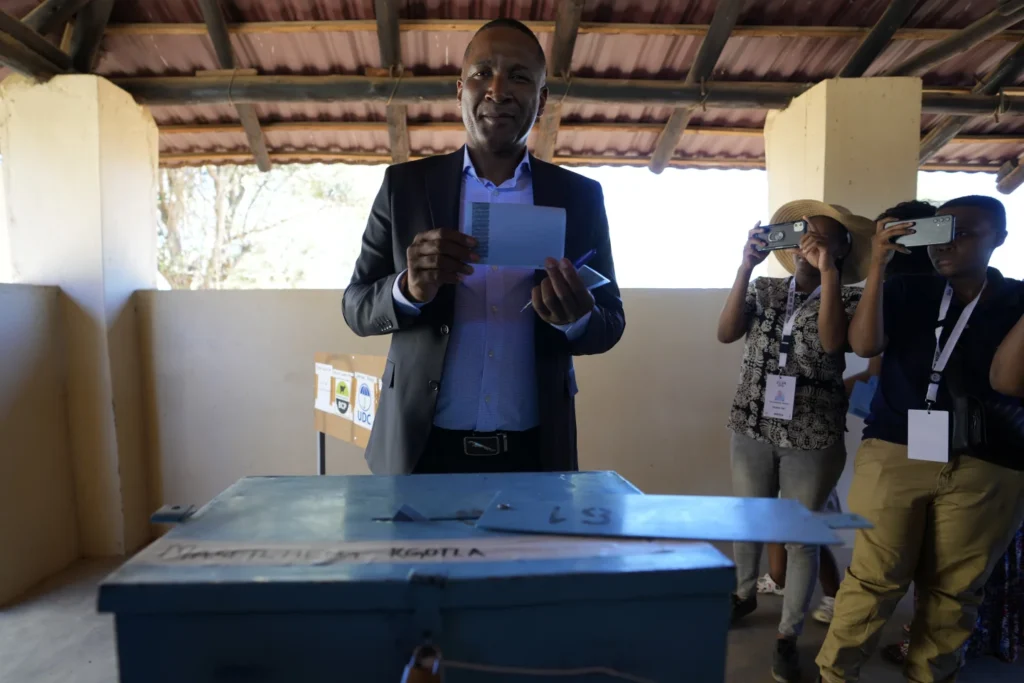
A Shift in Botswana’s Political Landscape
For nearly six decades, the BDP shaped Botswana’s trajectory, driving its development as one of Africa’s most stable democracies and achieving one of the continent’s highest living standards, largely fueled by the diamond industry.
Botswana, the world’s second-largest natural diamond producer, has built much of its economy around diamond exports, which account for over 80% of the country’s total exports and contribute to a quarter of its GDP.
However, as the global demand for diamonds has declined, so has Botswana’s economic resilience. The downturn has intensified public calls for change and has underscored the need for economic diversification.
Botswana’s unemployment rate surged to over 27% this year, affecting youth especially hard. As government revenue from diamonds dwindled, Masisi’s administration introduced austerity measures that ultimately drew criticism from voters who felt the BDP was slow to address the nation’s economic woes.
“We lost this election massively,” Masisi admitted, recognizing the overwhelming voter support for a new direction under the UDC.
An Unprecedented Moment for Southern Africa
This seismic shift in Botswana’s political landscape follows a similar trend seen earlier this year in neighboring South Africa, where the African National Congress lost its majority after 30 years and entered a coalition government. Both changes reflect a broader desire for new governance models and responsive leadership across southern Africa.
Duma Boko has long advocated for substantial policy reforms to address economic challenges and inequality. On his official X account, he posted, “Botswana First” alongside a UDC campaign poster with the slogan “Change is Here.”
As the President-elect, Boko pledged to prioritize job creation, support economic diversification, and implement policies that cater to Botswana’s younger demographic.
For Masisi, a former high school teacher and UNICEF employee, the defeat came as a shock in what he expected to be a closely contested race. Jokingly, he admitted to reporters that he had not prepared for the outcome and had “not packed a shoe.”
Nevertheless, Masisi expressed pride in Botswana’s democratic processes, stating his confidence that the nation would continue to thrive under the UDC’s leadership.
As final results solidify, Botswana is set to witness the first transfer of power to an opposition party in its post-independence history.
READ ALSO: CDD Estimates $32.4 Billion on Ghana’s Political Manifesto Pledges



